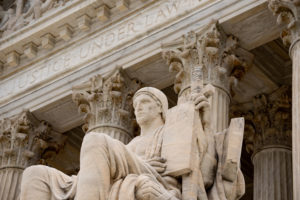
City ordinance prohibiting employers from asking about past salaries remains in limbo in federal court.
How much money did you make at your last job?
This common interview question is under national scrutiny for more than the discomfort it provokes in interviewees. Critics argue that it reinforces historical pay discrimination faced by women and minorities by tying their future earnings to disproportionately low past wages.
Citing these gender- and race-based wage gaps, the Philadelphia City Council last year passed a wage equity ordinance prohibiting employers from asking about or requiring disclosure of a job applicant’s pay history. The ordinance further maintains that an employer cannot rely on an applicant’s wage history in determining future wages unless the applicant “knowingly and willingly” discloses it.
Philadelphia’s City Council is not alone in its efforts. At least six states and four other cities have enacted similar measures. Private companies such as Amazon have made internal policy changes along the same lines.
Not all responses from the private sector have been friendly, however. Following the passage of Philadelphia’s ordinance, the Chamber of Commerce for Greater Philadelphia sharply criticized the city’s “anti-business reputation.”
The Chamber, along with Comcast, had unsuccessfully urged Philadelphia Mayor Jim Kenney to veto the ordinance. After Mayor Kenney nevertheless signed the ordinance into law in January 2017, the Chamber brought suit in federal court. The court has delayed the implementation of the ordinance, originally set to take effect in May 2017, until the ongoing litigation has been resolved. The stakes could be quite high, as this case represents the first legal challenge to any pay history ban in the United States.
Supporters of the ordinance have protested the Chamber’s legal challenge, arguing that employers’ access to applicants’ pay history fossilizes the disproportionately low pay received by women and minorities.
Indeed, the Women’s Law Project—in a brief filed with the court on behalf of numerous organizations supporting the ordinance—noted that women make 80 cents for every dollar that men make. Furthermore, black women make 63 cents and Latina women make only 54 cents for every dollar that white men make. According to the Project, women earn less than men beginning with their first jobs after college, and this disparity reportedly persists throughout women’s careers.
In its court filings, the Chamber has agreed that a gender-based wage gap exists and should be eliminated. The Chamber says, however, that it sees no evidence linking pay history information and the perpetuation of the wage gap. Lacking such evidence, the restrictions that the ordinance places on Philadelphia businesses’ ability to make informed hiring decisions are unjustified, the Chamber argues.
Other commentators likewise do not question the existence of a wage gap, but rather challenge the effectiveness of ordinances such as Philadelphia’s. For example, Payscale’s Lydia Frank has noted that women who refused to disclose their pay history were in fact offered 1.8 percent less than those who disclosed it, seemingly undercutting the premise behind pay history bans. In contrast, men who refused to disclose were offered 1.2 percent more, according to Frank.
But, hypothesizing about this difference, Frank has suggested that gender bias may still be a factor. Interviewers may react negatively to women who refuse to disclose when negotiating higher salaries, or they may assume that women who refuse to disclose earned less at their previous job. To avoid the biased effects of the question, Frank recommends that employers simply stop asking the question in the first place.
The Washington Post has reported that most employers are skeptical that pay history bans will work, most likely because they feel that they already rigorously monitor pay equality at their firms. For such firms, pay history bans may be a “nonevent.”
Refuting the claim that the ordinance overburdens businesses, the Women’s Law Project has pointed out that barring employers from considering certain characteristics in the hiring process because lawmakers have deemed those characteristics immoral or unfair to rely on is not exceptional. Under various state and federal laws, for example, employers may not consider race, religion, gender, nationality, age, various medical conditions, and other characteristics.
Some commentators moreover note that, even with pay history bans in place, employers should still be able to use information from market surveys. In any event, employers could “price the job, not the person” and tie salary ranges to certain qualifications.
But even if supporters of the ordinance marshal significant evidence linking pay history inquiries with perpetuating wage discrimination, the city could still face an uphill battle in court to defend the ban. Although Philadelphia has argued that two of the city’s witnesses would provide evidence sufficient to justify the ordinance, the Chamber contends that the ordinance infringes on employers’ First Amendment rights and requires the court’s most demanding scrutiny.
While the ordinance remains tied up in court, the Philadelphia Commission on Human Relations has adopted a regulation further clarifying the ordinance’s scope and exceptions. The case is ongoing in the U.S. District Court for the Eastern District of Pennsylvania before Judge Mitchell S. Goldberg.



